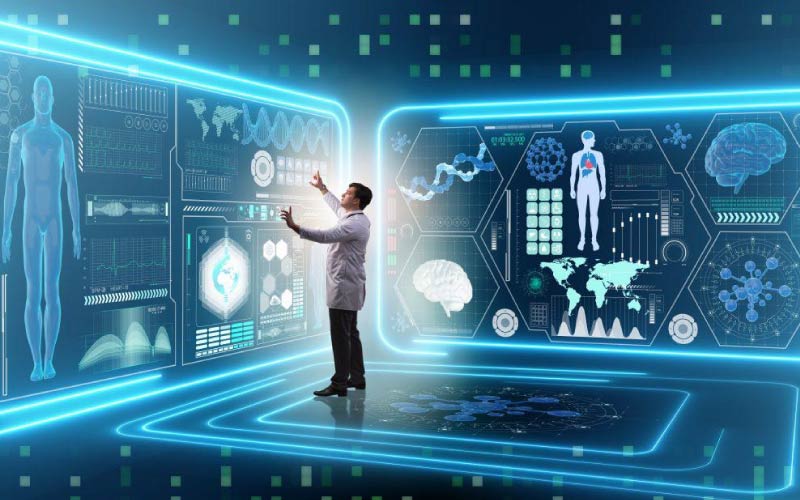Every other sector today leverages artificial intelligence in one way or other. The retail and e-commerce industry uses it to recommend products to customers. Banking and financial services leverage AI for vetting loan applications. The logistics and transportation sector use AI-powered bots for sorting and packaging.
So, why should the be any different? In fact, AI finds some of its most critical uses within healthcare. Medical practitioners use it for identifying disease patterns, conducting AI-robotic surgery, medical imaging, personalizing treatment plans, and much more.
No wonder AI in healthcare is growing at a thumping CAGR of 46.2%. And it will continue to grow at this pace till 2027. If we look at absolute numbers, AI in the healthcare sector presently stands at US$ 6.7 billion but will climb to a whopping US$ 67.4 billion by 2027.
What are the Key Drivers Behind AI Adoption in the Healthcare Sector?
A huge credit for AI adoption within the healthcare sector goes to reducing hardware costs and increasing computing and crunching power. Simply speaking, the AI technology algorithms run on cost-effective IT hardware. This is one of the levers that bring down the cost of providing healthcare in exchange for improved treatment plans and medical care.
Healthcare professionals who once had to keep patient records, treatment history, etc., on legacy systems only enter relevant patient details on an interface. The segmenting and sorting are taken care of by powerful AI algorithms. This also reduces the administrative load of the healthcare staff and awards them more time to check on patients, devise treatment strategies, etc.
AI application in healthcare shortens response time and bridges the information gap between doctors and patients. You can access the complete database of individuals or institutions created by AI algorithms with just a tap on your screen.
A Summary of AI Applications in the Healthcare Sector

- Can help with cancer diagnoses
- Chatbots improve customer service
- AI algorithms can play the role of virtual health assistants
- Automate clerical and repetitive tasks
- Collect and manage medical records
- It can help with mapping rare diseases
Key Challenges to AI Adoption in Healthcare

Data privacy is the top-most challenge regarding the use of AI in healthcare. Given that AI databases collect huge chunks of patient information on a daily basis that keeping data from leaking requires strategic moves.
Add to it most servers that store patient data are collected and used by AI on vendor servers. This, at times, make patient information vulnerable as breaches may occur. Issues around data security and privacy can lead to lawsuits and settlement claims.
Sure, you have international data protection laws like GDPR and CAN-SPAM, but not complying with these frameworks can result in financial and legal penalties.
To avoid such mishaps, AI users should always host their information on renowned servers, even if it costs a smidge more.
The Bottom Line

Know that the healthcare sector produces large sets of big data that come from diverse sources. These include sensors, wearable medical devices, ECG machines, biometric data, social media interactions, etc.
So, if you have an AI-powered product or service, now is the right time to market it to doctors and hospital management. The healthcare sector is more receptive than ever to AI-based solutions, provided your marketing to doctors is a personalized endeavor. No point marketing a pulse oximeter to a pathologist who practices referral medicine. Now that you know the relevance of AI within the healthcare sector, its benefits, and its top challenges, it’s time to approach your target audience by leveraging this technology.
